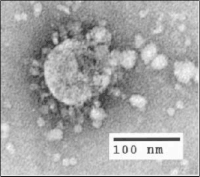
Photo from wikipedia
Introduction: The coronavirus disease 2019 (COVID-19) pandemic disproportionately burdens communities of color in the United States. The prevalence of preexisting conditions in these populations has not accounted for the observed… Click to show full abstract
Introduction: The coronavirus disease 2019 (COVID-19) pandemic disproportionately burdens communities of color in the United States. The prevalence of preexisting conditions in these populations has not accounted for the observed health inequities. A growing body of research indicates a significant role of racialized residential segregation and income inequality on health outcomes. The Index of Concentration at the Extremes (ICE) is a metric which captures socio-spatial and economic polarization that has proven to be a valuable predictor of a large variety of health outcomes. Objectives: The primary objective of this ecologic study was to determine the impact of socio-spatial and economic segregation on severe acute respiratory syndrome coronavirus 2 (SARS-CoV-2) morbidity and mortality in Georgia. Methods: The ICE scores for racial/ethnic, economic, and racialized economic segregation for each county in Georgia (n=159) were calculated and investigated as predictors of increased SARS-CoV-2 positivity rate, case-hospitalization rate, and case-mortality rate after controlling for the prevalence of preexisting conditions (diabetes, obesity, and smoking) and potential barriers to care (uninsured rate). Results: Counties with the largest income disparity had 1.57 times the case rate (p<0.0001) and 1.7 times (p<0.01) the case-mortality rate compared to the most privileged counties. Cases in counties with the largest racialized economic segregation were 1.8 times more likely to be hospitalized (p<0.0001). Conclusion: Racialized economic segregation is a strong correlate of pandemic health inequities in Georgia and highlights the need for structural interventions to address barriers to minority and vulnerable population health. Increased focus and efforts to address the structural and systematic barriers faced by communities of color is necessary to address health inequities.
Journal Title: Health Equity
Year Published: 2022
Link to full text (if available)
Share on Social Media: Sign Up to like & get
recommendations!